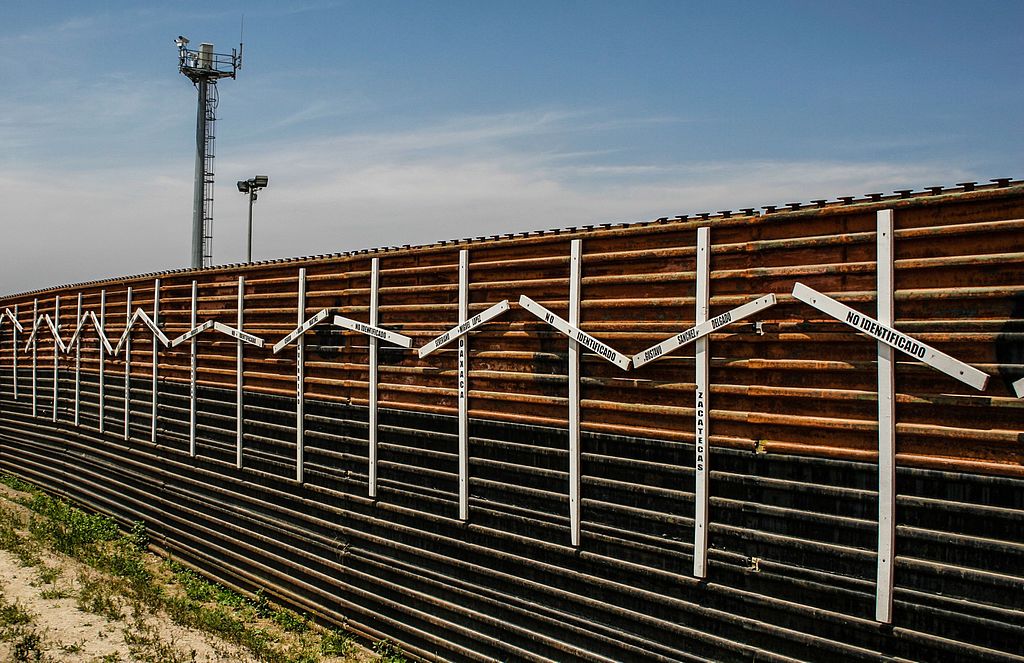Family Separation at the U.S.-Mexico Border
At the U.S.-Mexico border, parents are being separated from their children after crossing the border illegally. The Trump administration has given multiple, conflicting defenses of the practice, each defense warranting a separate assessment.
The practice of breaking up families was initially announced in April. The Justice Department had decided on a zero-tolerance policy toward illegal immigrants. Whereas border crossing had previously been handled in civil courts, and border crossers released on their own recognizance (many never to appear in court), the new policy was to file criminal charges and place people in criminal detention. Separating parents and children was a byproduct of the new policy, since children can’t be housed in jails. And some administration officials insisted it was a mere byproduct. In April, Katie Waldman, a Homeland Security spokeswoman, said, “DHS does not have a policy of separating families at the border for deterrence purposes.”
Nevertheless, in May, White House Chief of Staff John Kelly referred to family separation as a “tough deterrent.” And Justice Department spokesman, Devin O’Malley, didn’t reject that characterization in a June NPR interview. The Attorney General, Jeff Sessions, overtly uses family separation to send a tough message to would-be illegal immigrants. In an interview with Hugh Hewitt, he said, “If people don’t want to be separated from their children, they should not bring them with them.”
So the Trump administration is shifting between at least two rationales for parent-child separation. One is the byproduct of criminal prosecution defense and the other is the deterrence defense. But there is a third defense, the no choice defense. On May 18, the president said, “We have to break up families. The Democrats gave us that law. It’s a horrible thing where you have to break up families.” And about a week later he tweeted that Democrats should be pressured to end this “horrible law”.
Salvador Rizzo of The Washington Post makes it clear there’s no Democrat-authored law that’s forcing the Trump administration to separate parents and children. According to Rizzo, Stephen Miller, the president’s senior advisor, explains the blaming of Democrats in this way: “these laws may or may not be Democratic creations, but Democrats own them because they don’t support Trump’s more-restrictive immigration agenda.” In short, the message Trump is trying to send is that the only way to protect children from being separated from their parents is to build “the wall.” The whole policy—“zero tolerance” plus family separation—may even be a ploy to make the situation at the border seem as horrible as possible, so that Congress is forced to fund Trump’s wall and he can boast that he’s fulfilled a campaign promise. This is what you might call the children-make-good-pawns defense of family separation.
It’s pretty obvious that the third and fourth defenses of family separation are reprehensible. There’s no justification for playing manipulative political games using vulnerable infants and children as weapons. But let’s back up to the slightly more sober Justice Department rationales. The “deliberate deterrence” defense, the one articulated by Jeff Sessions, is also pretty clearly an ethically flawed defense. Once again, the idea is to use children as weapons, but not as political weapons. Rather, as weapons in the effort to stop adults from choosing to cross the border illegally. Inflicting the trauma of separation on children amounts to punishing children for the sins of their parents. What next? Chopping off the fingers of infants, because that would have an even greater deterrent effect on would-be immigrants?
The first rationale, the “byproduct of criminal prosecution” defense, is really the only one with the slightest chance of withstanding scrutiny. I will say this for it: it’s usually reasonable to keep children out of jails and prisons. It was a humane, progressive development when the practice of incarcerating children with their parents came to an end in developed countries (it continues in some developing countries). But one might reasonably ask whether a detention facility really must be governed by the same rules as a standard jail. After all, the “inmates” are a very different set of people than the usual jail. It’s impossible to believe that the Justice Department really has no discretion here. In fact, to keep immigrants out of the country, the Justice Department has been daring and innovative, provoking courts to weigh in repeatedly. Surely there’s an option to innovate in this area as well.
And then, if criminal prosecution actually did have family separation as an inevitable byproduct, there would need to be a careful assessment of whether the benefits justify the steep costs. The harming of these innocent children is collateral damage in the Trump administration’s campaign to secure the borders, but collateral damage matters, even if it’s collateral. The president of the American Academy of Pediatrics, Colleen Kraft, MD, has taken a strong stance opposing parent-child separation at the border, on behalf of the organization. “We can and must do better for these families. We can and must remember that immigrant children are still children; they need our protection, not prosecution.”





